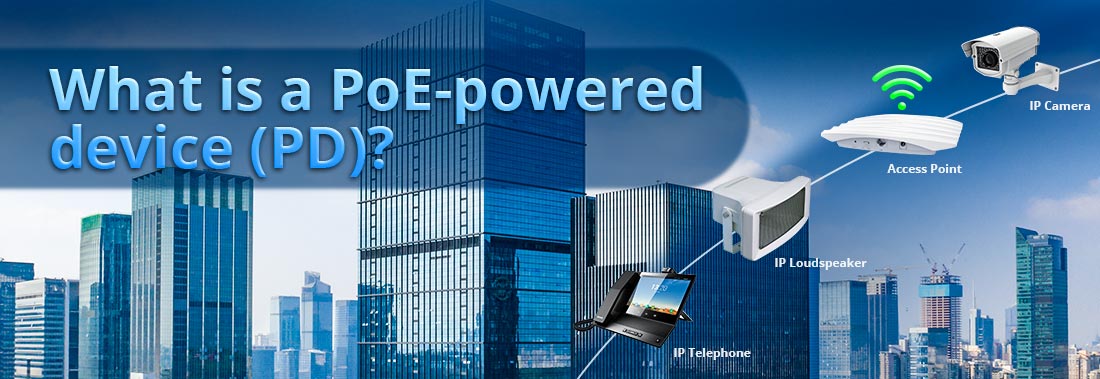
A PoE-powered device (PD) is any network device that receives both power and data through a single Ethernet cable using Power over Ethernet (PoE) technology. This eliminates the need for separate power supplies or electrical outlets, simplifying installation and reducing wiring complexity.
Key Examples of PoE-Powered Devices:
IP Cameras: Including surveillance and security cameras (especially 4K cameras), which are often powered via PoE to simplify cabling in outdoor or remote areas.
VoIP Phones: Many modern office phones receive power and data from the network using PoE.
Wireless Access Points (WAPs): PoE is commonly used to power wireless routers or access points, especially in places where running separate power lines is difficult.
Network Switches: Some switches are PoE-powered, allowing them to extend network reach in locations where electrical outlets are unavailable.
Intercoms, Access Control Devices, and Sensors: These devices in smart buildings or security systems often use PoE for power and network connectivity.
Key Benefits of PoE-Powered Devices:
Simplified Installation: One Ethernet cable provides both power and data, reducing the need for electrical wiring.
Flexibility: Devices can be installed in areas where power outlets are not available or practical.
Scalability: As businesses grow, PoE-powered devices can be added to the network without requiring major changes to power infrastructure.
In PoE networks, the Power Sourcing Equipment (PSE)—such as a PoE switch or PoE injector—provides the power, while the PD is the device receiving the power and network connection.